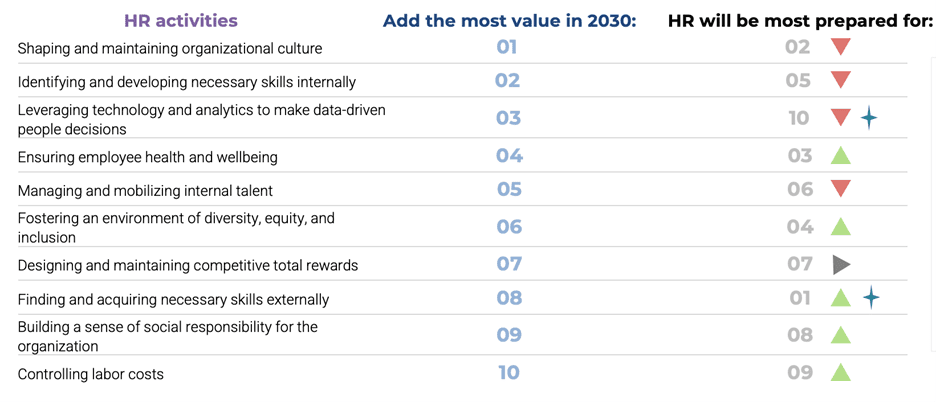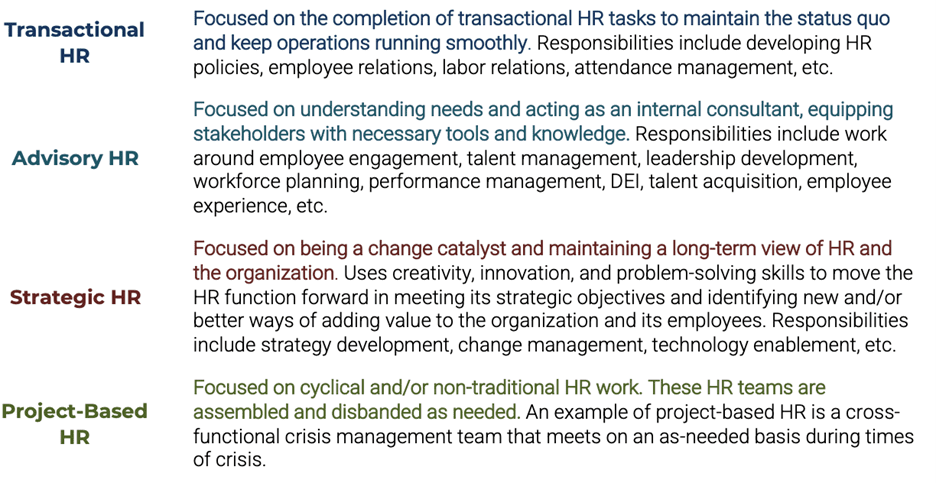McLean: HR’s priorities are out of whack
They need to focus more on internal mobility and technology.
News In Brief
Businesses are evolving, and HR is no exception.
The department needs to reprioritize and focus if it wants the company to thrive, according to McLean.
Here's the solution.
HR teams are struggling to get their priorities right – that’s according to McLean & Company’s Future of HR Report.
The research surveyed almost 500 HR workers and collated insights from other data points and interviews with HR leaders.
It found that HR professionals are struggling to focus on the most value-adding work, including culture building and technology adoption.

Credit: McLean & Company, The Future of HR report.
The respondents expect technology implementation to be the third highest value-adding HR task of the future but rate their preparedness 10th (or last).
McLean’s report also found that HR was spending too much time and resources on finding and attracting external talent.
52% of respondents told McLean their department is prepared to find skilled outside hires, but only 18% believe this will be a high value-adding activity in the future.
External hiring is very expensive, and it is not always possible to hire in the skills you need now and for the future. Instead, McLean calls on employers to prioritize developing readily accessible, internal talent.
Thankfully, HR departments are recognizing this. McLean found that respondents were 2.2 times more likely to categorize developing skills internally as a high value-adding HR activity.
There is no one-size-fits-all HR department
Another finding from McLean is that the very definition of HR is evolving, but this evolution is not consistent in form nor scope. In fact, the typical HR department could look completely different by the year 2030.
One major change is that diversity, equity, inclusion and belonging (DEIB) will no longer be the concern of the HR department alone. For DEIB initiatives to be successful, they must be a pillar of company culture, embedded into every department and valued by every leader.
The good news is that HR departments are recognizing this. Only a third of survey respondents see DEIB as a high-value-adding HR activity, pointing not to a lack of care for these programs but to an understanding that successful initiatives will not be the responsibility of HR alone.
Taking DEIB and out of HR is an important step in the right direction; these departments are tired and burned out.
In Mclean & Company’s 2023 HR Trends report, 39% of respondents report experiencing greater stress than in the previous year. 34% reported experiencing burnout.
Beyond diversity and task distribution, organizations need to think very carefully about the type of HR department they’re looking for.

Credit: McLean & Company, The Future of HR report.
Business is changing and HR is no exception. The HR solutions of today will not work for the HR problems of tomorrow.
Sign up to the UNLEASH Newsletter
Get the Editor’s picks of the week delivered straight to your inbox!

Editorial Intern
Will is a Texas native studying Accounting and Journalism at SMU in Dallas.
